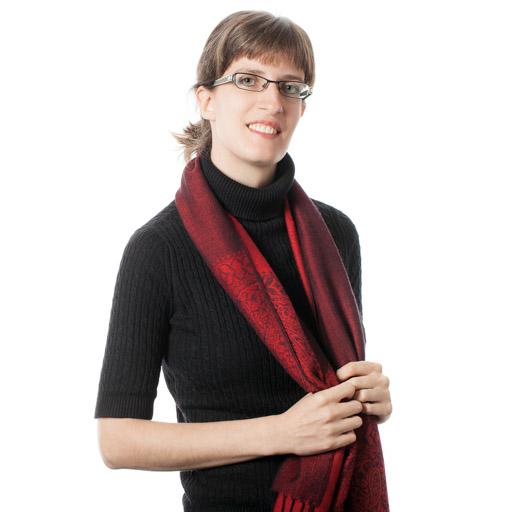
Dave Ward
Holly Recchia, PhD
Thesis supervisor Accepting inquiries
- Professor, Education
Are you the profile owner?
Sign in to editThesis supervision details
Supervised programs: Child Studies (MA), Education (PhD)
Research areas: Social and Moral Development Conflict Resolution Restorative Practices
Contact information
Biography
Dr. Recchia's research focuses on children's social and moral development in the context of their close relationships with parents, siblings, and friends. She is especially interested in how children make sense of and resolve conflicts with others. She is currently accepting graduate students in the MA in Child Studies and PhD in Education programs.
Education
2009 – 2010
Postdoctoral Research Fellow, Department of Psychology, University of Utah, Salt Lake City, UT.
2005 – 2009
PhD in Psychology, Centre for Research in Human Development, Concordia University, Montreal, QC.
2003 – 2005
MA in Psychology, Centre for Research in Human Development Concordia University, Montreal, QC.
1998 – 2003
Honours BA in Psychology and Applied Studies University of Waterloo, Waterloo, ON.
Research interests
How do children make sense of conflict in different relationships, and how do these experiences change with age?
How are features of children’s close relationships with parents, siblings, and friends related to their sociomoral development?
How is children’s sociomoral development related to their experiences with violence and injustice?
How can socialization agents such as parents and educators help to further the development of children’s sociomoral understandings?
Selected publications
*denotes student co-author
Recchia, H., Wainryb, C., & Pareja Conto, L*. (in press). Taking a developmental perspective on restorative justice in schools. In G. Velez & T. Gavrielides (Eds.), Restorative justice: Promoting peace and well-being. Springer.
Recchia, H., & Wainryb, C. (in press). The role of conversations in moral development. Handbook of Moral Development, 3rd edition.
Recchia, H. E., & Wainryb, C. (Eds.) (2021). Revenge across childhood and adolescence. Cambridge, UK: Cambridge University Press.
Scirocco, A.*, & Recchia, H. (2021). Context specificity in adolescents’ implicit theories of morality. Cognitive Development, 60, 101-112. https://doi.org/10.1016/j.cogdev.2021.101112
Recchia, H. E., Wainryb, C., & Posada, R. (2020). The Juxtaposition of Revenge and Forgiveness in Peer Conflict Experiences of Youth Exposed to Violence. Journal of Research on Adolescence, 30, 956-969.
Velez, G., Hahn, M., Recchia, H., & Wainryb, C. (2020). Rethinking responses to youth rebellion: Recent growth and development of restorative practices in schools. Current Opinions in Psychology, 35, 36-40.
Wainryb, C., Recchia, H. E., Faulconbridge, O.*, & Pasupathi, M. (2020). To err is human: Forgiveness across childhood and adolescence. Social Development, 29, 509-525.
Recchia, H. E., Wainryb, C., & Pasupathi, M. (2019). “I wanted to hurt her”: Children’s and adolescents’ experiences of desiring and seeking revenge in their own peer conflicts. Social Development, 28, 840-853.
Tavassoli, N.*, Recchia, H. E., & Ross, H. (2019). Preschool children’s prosocial responsiveness to their siblings’ needs in naturalistic interactions: A longitudinal study. Early Education and Development, 30, 724-742.
Dirks, M., Recchia, H. E., Estabrook, R., Howe, N., Petitclerc, A., Burns, J., Briggs-Gowan, M., Wakschlag, L. (2019). Differentiating typical from atypical perpetration of sibling-directed aggression during the preschool years. Journal of Child Psychology and Psychiatry, 60, 267-276.
Scirocco, A.*, Recchia, H. E., Wainryb, C., & Pasupathi, M. (2018). Conversations about children’s transgressions against siblings and friends: Are maternal moral socialization strategies sensitive to relationship context? Social Development, 27, 910-923.
Dirks, M. A., Dunfield, K. A., & Recchia, H. E. (2018). Prosocial behavior with peers: Intentions, outcomes, and interpersonal adjustment. In W. M. Bukowski, B. Laursen, & K. H. Rubin (Eds.) Handbook of Peer Interactions, Relationships and Groups (pp. 243-264). New York, NY: Guilford Press.
Wainryb, C., & Recchia, H. E. (2017). Mother-child conversations about children’s moral wrongdoing: A constructivist perspective on moral socialization. In N. Budwig, E. Turiel, & P. Zelazo (Eds.), New perspectives on human development: Rethinking cognitive, social, and language & communicative Development (pp. 182-208). Cambridge, UK: Cambridge University Press.
Wainryb, C. & Recchia, H. E. (Eds.) (2014). Talking about right and wrong: Parent-child conversations as contexts for moral development. Cambridge, UK: Cambridge University Press.

